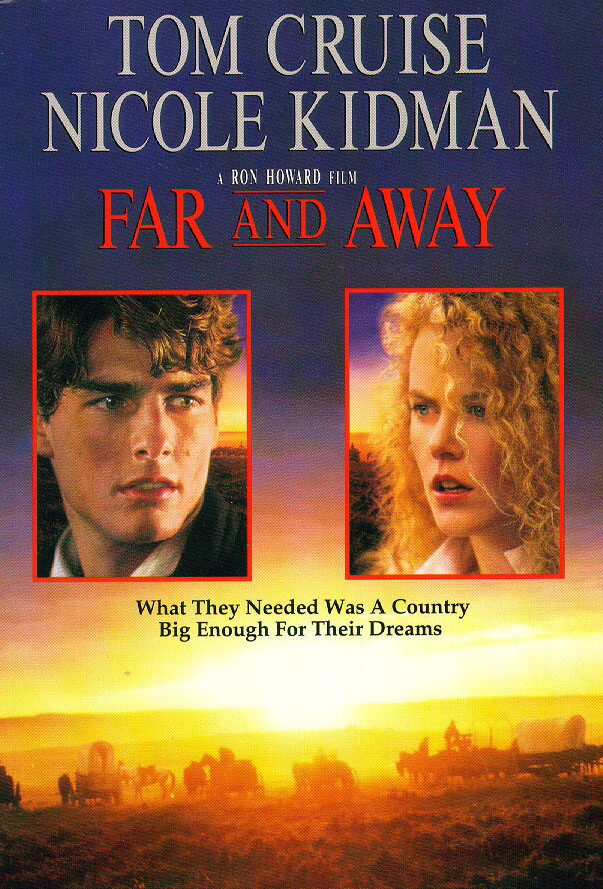Mastering Verb Teamwork
“Far and Away” (1992) is a sweeping saga that follows the journey of a young Irish couple, Joseph Donnelly and Shannon Christie, as they migrate to America in search of a better life. Their story culminates triumphantly in the Oklahoma land rush of 1893, a historical event where participants raced to claim free land offered by the U.S. government, territory previously held by the Cherokee tribe.
Joseph secures a valuable parcel of land in this dramatic race, embodying his father’s belief that land is essential to a person’s identity. Yet, the heart of the movie is the evolving relationship between Joseph and Shannon, who share this adventurous quest from Ireland to America.
A pivotal moment occurs during the land rush when Joseph is injured and falls from his horse, prompting Shannon to express her deep love for him in a moment of despair. This emotional turmoil underscores the depth of their bond.
After securing his land, Joseph professes his love to Shannon, stating that the land holds no value for him without her by his side, intertwining their love story with their quest for land and identity.
Shannon Christie: No! Joseph, please come back. Joseph, no! Don’t leave me alone. Please. I loved you. I loved you from the first time I saw you.
Joseph Donnelly: I’ve often wondered about that.
Joseph Donnelly: But all the land in the world means nothing to me without you.
Previously, we defined the Verb Avengers as being composed of <modal verb + frequency adverb + verb + adverb + preposition>.
Verb Avengers: <modal verb + frequency adverb + verb + adverb + preposition>
Now, let’s take a closer look at the second member of this formula, the special adverb known as the frequency adverb. The line from Joseph, “I’ve often wondered about that,” and Mr. Keating’s saying, “We must constantly look at things in a different way,” both employ all members of the Verb Avengers. In these two sentences, the frequency adverbs “often” and “constantly” both express frequencies.
Typically, adverbs assist verbs by following them. However, as shown in the examples above, frequency adverbs belong to the group of Verb Avengers and play a role in making the expression of the verb more precise. Although we simply refer to them as frequency adverbs, we should think of this concept as including adverbs that indicate extent, as organized in the following table.
| adverbs of frequency | % | adverbs of degree |
| always | 100% | completely |
| constantly | 99% | nearly, mostly, almost |
| usually | 80% | generally |
| often | 70-80% | |
| sometimes | 50% | |
| seldom | 20-30 | possibly |
| rarely | 10-20 | hardly |
| never | 0% |
Let’s examine a few expressions that utilize such adverbs. The following is a dialogue between an elder of the neighborhood and a young man from the movie “Do the Right Thing” (1989), which deals with racial issues.
DA MAYOR: Always do the right thing. MOOKIE: That’s it? DA MAYOR: That’s it. MOOKIE: I got it, I’m gone. <DO THE RIGHT THING, 1989>
Additionally, when frequency adverbs are used, the dialogues can be observed as follows:
Angel: [to Tony] You’re chicken, man. You almost made it. <Scarface>
Nathan Jessep: I have a greater responsibility than you can possibly fathom. <A Few Good Men>
Mac: Reality rarely lives up to expectation. Especially if you’re a teenager. <CSI New York: American Dreamers>
Maria: There were times when we would look at each other – oh Mother, I could hardly breathe. <The Sound of Music>
Forrest Gump: In the land of China, people hardly got nothing at all. <Forrest Gump>


답글 남기기